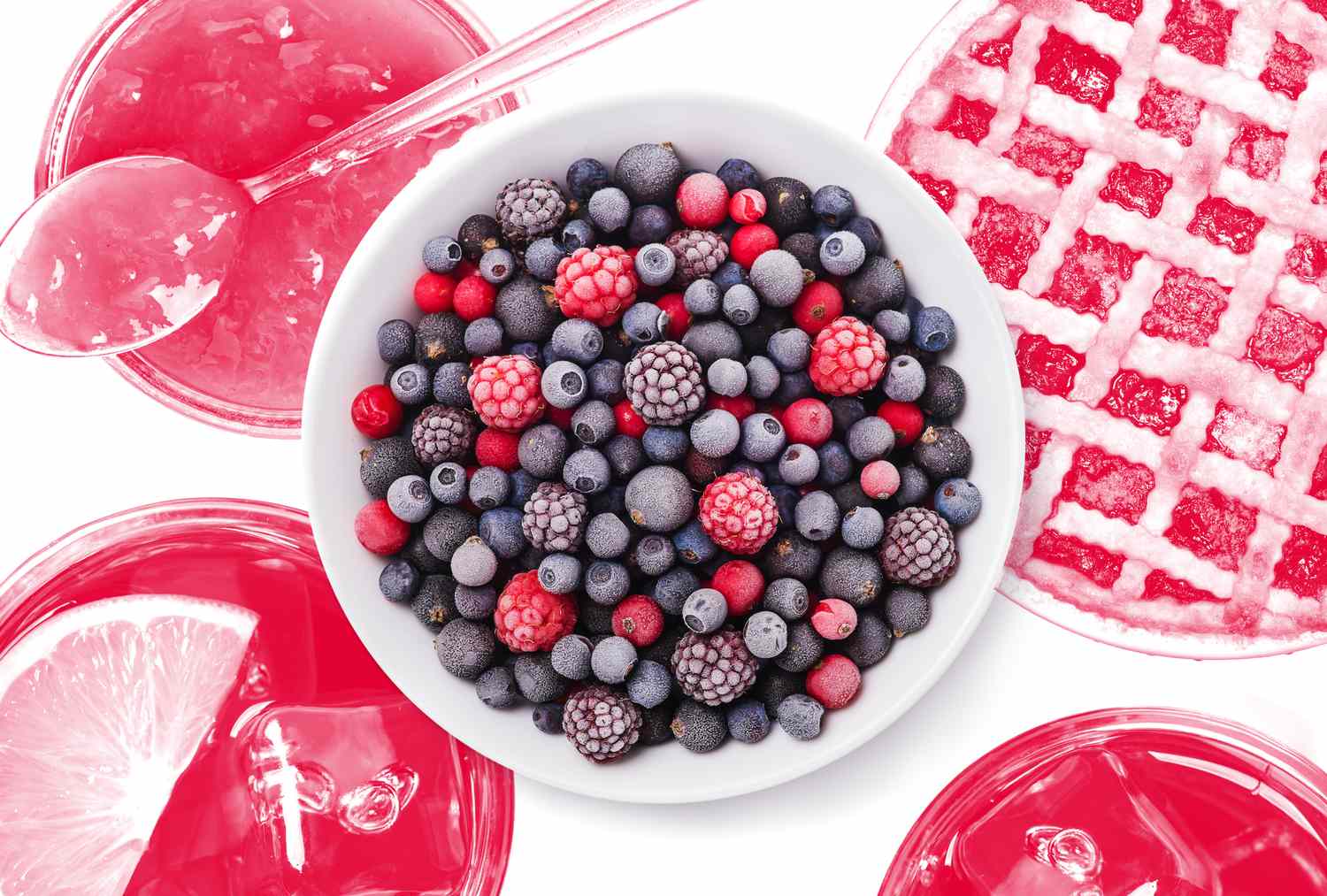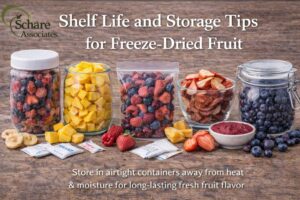In recent years, frozen fruits have grown in popularity, becoming a household staple in many parts of the world. Whether you’re creating a smoothie, baking a pie, or simply desiring a refreshing snack, frozen fruit provides convenience without sacrificing flavor or nutrients. But have you ever wondered how frozen fruit travels from the farm to your freezer? Let’s explore the interesting world of frozen fruit production.
- Harvesting: On the farm, mature fruits are handpicked or mechanically gathered at their peak freshness. This critical process ensures that the fruits are full of taste and nutrients.
- Sorting and Cleaning: After harvesting, fruits are thoroughly sorted and cleaned to remove debris, dirt, and damage. This phase is critical to ensuring the quality and safety of the finished product.
- Pre-Freezing Treatment: Pre-freezing treatments can maintain the texture, flavor, and nutritional content of fruits. This could include blanching (short immersion in boiling water) or flash-freezing (rapid freezing at extremely low temperatures). These approaches help to preserve freshness and keep the fruits from clumping together during freezing.
- Freezing: The next step is to freeze the fruits. This is often accomplished via a procedure known as IQF (Individually Quick Frozen), in which each fruit piece is frozen separately. The IQF freezing equipment preserves the fruits’ natural shape, texture, and flavor while preventing huge ice crystals from forming, which can reduce quality.
- Packaging: Once frozen, the fruits are properly wrapped to prevent freezer burn and contamination. Packaging materials might vary, although they typically include plastic bags or containers developed expressly for frozen foods. Some containers may additionally incorporate freshness-preserving features such as resealable zippers or vacuum sealing.
- Storage & Distribution: After packing, the frozen fruits are kept in specialized freezers at extremely low temperatures to ensure their quality until they reach consumers. They are then distributed to grocery stores, supermarkets, and other retailers, where they can be enjoyed by customers.
- Consumption: Finally, frozen fruits make their way into our homes, allowing them to be enjoyed all year. Frozen fruits are a delightful and nutritious option for every occasion, whether they are used in dishes, smoothies, desserts, or simply eaten on their own.
Benefits of Frozen Fruits
- Nutrient Value: Freezing fruits at their full ripeness preserves their nutritious content, which includes vitamins, minerals, and antioxidants.
- Convenience: Frozen fruits are available all year, so there is no need to wait for specific seasons. They also have a longer shelf life than fresh fruits, minimizing food waste.
- Versatility: Frozen fruits can be utilized in a variety of cuisines, from breakfast to dessert, opening up unlimited culinary possibilities.
- Cost-effective: Buying frozen fruits in quantity can frequently be less expensive than buying fresh fruits, especially when specific fruits are out of season.
Conclusion
The journey of frozen fruit from the field to your freezer requires a number of rigorous stages designed to preserve freshness, flavor, and nutritional content. With their ease, adaptability, and year-round availability, frozen fruits have become a modern kitchen mainstay, providing a quick and delightful way to enjoy nature’s bounty. So, the next time you grab for a bag of frozen berries or mango chunks, think of the journey they’ve taken to bring you delight and nutrients. Buy the best frozen fruits only from Schare Associates. We offer a wide variety of products, explore and buy yours now!
Key Takeaways
- Versatility and Innovation: Bulk frozen fruits enable businesses to differentiate themselves by developing new dishes, desserts, sauces, and beverages.
- Consistency and Quality Assurance: Controlled freezing of bulk frozen fruits assures consistent flavor, texture, and appearance, leading to dependable and gratifying consumer experiences.
- Bulk frozen fruits improve operational efficiency by reducing time-consuming fruit preparation chores. This allows businesses to focus on creativity and service without sacrificing quality.
- Cost-effectiveness: Buying frozen fruits in bulk reduces unit prices and food waste, resulting in better budget management and profit margins.
- Nutritional value: Bulk frozen fruits contain critical minerals, vitamins, and antioxidants, making them a healthy choice that aligns with current dietary trends.
- Sustainability and Eco-Friendly Practices: Longer shelf life of bulk frozen fruits lowers food waste, promotes sustainable sourcing, and attracts environmentally aware customers.




